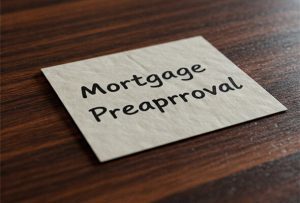As homebuyers navigate the complexities of obtaining a mortgage, one common question is when mortgage payments begin. At Sire Finance, our seasoned team of mortgage consultants understands the confusion surrounding this topic.
This article aims to clarify when exactly mortgage payments start in the home-buying process.
When Is Your First Mortgage Payment Due After Closing?
To determine the due date for your first mortgage payment, simply add a month to your closing date and expect the payment to be due on the first day of the following month. You can find this information in the documents you receive at closing, specifically in “First Payment Letter.” This letter will provide all the necessary details for making your first mortgage payment on time.
Mortgage payments are typically made in arrears, so each payment covers the previous month’s usage. This also means that when you close on a mortgage, the lender will collect upfront the interest owed for the month you closed.
Can You Change the Due Date of Your Mortgage Payment?
To determine whether you can adjust your mortgage due date, it’s crucial to understand your lender’s specific policies. While some lenders allow flexibility in changing the due date, particularly during the closing process, others may have strict restrictions.
It’s best to contact your lender directly to clarify their stance on modifying your mortgage payment schedule.
How Much Will Your First Mortgage Payment Be?
Your first mortgage payment will be determined by your loan’s size and term (also known as length).
With a fixed-rate mortgage, your monthly payments will remain consistent throughout the term of your loan. This stability allows you to budget effectively and plan for future financial commitments. Knowing that your principal and interest payments will not fluctuate over time provides peace of mind.
If you have an adjustable-rate mortgage with a variable interest rate, the amount you owe in interest may fluctuate annually based on the terms of your loan. Similarly, if you make monthly payments to cover property taxes and insurance premiums as part of your mortgage payment, these costs may change yearly. However, these adjustments are typically minor in most cases.
What Makes Up Your Mortgage Payment?
Understanding the breakdown of your monthly mortgage payment is crucial for financial planning. Your first mortgage payment amount will be detailed in the closing disclosure provided to you before closing. This payment typically includes principal and interest and additional funds deposited into an escrow account for taxes and insurance.
Remember, PITI represents the key elements of your mortgage payment: principal, interest, taxes, and insurance.
Before you finalize your home purchase, it’s crucial to calculate your PITI payment to ensure you can comfortably afford the property. By including taxes and insurance in addition to the principal and interest, you’ll have a clearer picture of your overall budget. This calculation can also assist you in determining the loan amount that a lender may be willing to approve for you.
Utilize Sire Finance’s user-friendly mortgage calculator to calculate your monthly mortgage payments effortlessly. Prospective homebuyers can effectively determine their affordability and budget by entering key details like purchase price, down payment, interest rate, and loan term.
This tool simplifies the process by showing how various factors influence monthly expenses, enabling a more transparent and more organized approach to buying a home.
The initial payment on your mortgage will mainly cover interest, as outlined in your loan’s amortization schedule. Your first year of homeowner’s insurance premiums are typically bundled into closing costs, with ongoing monthly property taxes and insurance payments.
These costs and any required mortgage insurance premiums will be integrated into your monthly mortgage payment.
Factors That Might Affect Your First Mortgage Payment
Two important factors can influence when you make your first mortgage payment: closing date and early payments.
Closing Date
Understanding the relationship between your closing date and your first mortgage payment due date is essential. Mortgage providers typically require your first payment to be due on the first day of the month, following a full 30 days after closing. This means that the day you close can impact how long you have until that first payment is due.
For example, if you close on January 5th, your first payment will be due on March 1st. If you close on January 29th, your first payment will also be due on March 1st, resulting in a shorter time frame between closing and the first payment.
Early Payments
Before making an early payment on your loan, it is important to communicate with your lender to ensure that the payment is applied correctly. Early payments should aim to reduce the principal faster rather than pushing the next due date further into the future. This can help minimize the amount of interest accrued in the initial days of the loan and ultimately save you money in the long run.
How to Prepare for Your First Mortgage Payment
Navigating the financial strain that comes with buying a new home can be tricky, especially when it comes to making that first mortgage payment. Here are a few tips to help you manage your expenses before your due date.
- Be strategic with your closing date. By strategically choosing your closing date, you can create a more seamless transition between your last rental payment and your first mortgage payment, giving you time to save. Consider aligning your closing date with when you get paid, or your lease ends to help manage your finances effectively.Additionally, timing your closing with the sale of your current home can help reduce the burden of making multiple payments at once. Planning can make the 30-day gap between closing and the first payment work in your favor.
- Make a budget and stick to it. When considering homeownership, it’s important to factor in not just the mortgage and essential utilities but also property taxes, routine maintenance costs, and emergency repairs. Setting aside a monthly allocation for unexpected expenses can help ensure you’re prepared for any surprises that may arise.Additionally, having at least three months’ worth of living expenses saved up can provide a buffer against situations like job loss or health issues. By cutting back on non-essential spending and prioritizing your home expenses, you can better manage the financial responsibilities of owning a home.
- Make a plan to replenish savings. It is important to have a plan to replenish any savings used for a home purchase as soon as possible. Doing so can ensure financial stability and avoid any potential future financial strain. Consider setting aside a portion of your monthly income to replenish those funds until your savings return to their original amount.
How To Make Your First Mortgage Payment
When making your mortgage payment, you typically have the choice. However, you can explore various options to find the best method that suits your needs.
Auto-pay
Setting up automatic bank deductions for your mortgage payments is a popular choice among homeowners. Not only does it help ensure consistent and timely payments, but it also contributes positively to your credit score. This method is also incredibly convenient, providing peace of mind with a “set it and forget it” approach.
Online Payment
By utilizing your lender’s online portal or app, you can easily and securely make payments towards your mortgage. This method offers a convenient way to make additional principal payments if you are looking to pay off your house early. With spare cash, you have the flexibility to speed up the process and reduce the amount of interest paid over time.
Send a check by mail
If you prefer to make your monthly mortgage payment by mail, you can do so by sending a personal check, cashier’s check, or money order. Make sure to include your mortgage account number on your payment to ensure it is properly credited. Be sure to send your payment with enough time for delivery to avoid incurring any late charges.
By phone
To make a mortgage payment over the phone, locate the number on your mortgage statement and provide your mortgage account number and banking information to the customer service agent. Before proceeding, it is advisable to inquire about any potential service charges associated with phone payments. This method can be useful for timely payments close to the due date, helping to avoid late fees.
No matter the payment method you choose, it is important to keep detailed records for future reference. For online payments, make sure to screenshot or print the confirmation page or save the confirmation email.
If you’re using checks, remember to keep a copy and note down the check number and date sent. By keeping organized records of your payments, you can easily resolve any disputes that may come up in the future.
What Happens If You Miss A Payment?
If you happen to miss a mortgage payment, it is crucial to make the payment promptly to avoid any negative consequences. While a single late payment may not lead to eviction, consistent delinquencies can impact your credit score. Most lenders provide a grace period of 15 to 30 days for payments, during which you can avoid late fees by paying within that window.
Additionally, it is essential to promptly inform your mortgage lender of any changes to your bank accounts to ensure that payments are processed correctly. If you are experiencing difficulties with your mortgage payments, it is crucial to reach out to your lender without delay.
While there is no guarantee, there may be options available, such as waiving late fees or implementing alternative payment plans to help alleviate financial strain.
Contacting your lender early on can potentially lead to solutions such as loan modifications, repayment plans, or temporary payment reductions.
All Set?
Ensuring that you have a clear understanding of when your first mortgage payment is due and the consequences of late payments is crucial for a smooth home-buying journey.
If you are ready to begin the mortgage approval process, our team of expert mortgage brokers at Sire Finance is here to provide professional guidance to help you achieve your dream of homeownership. Contact us today to get started.












